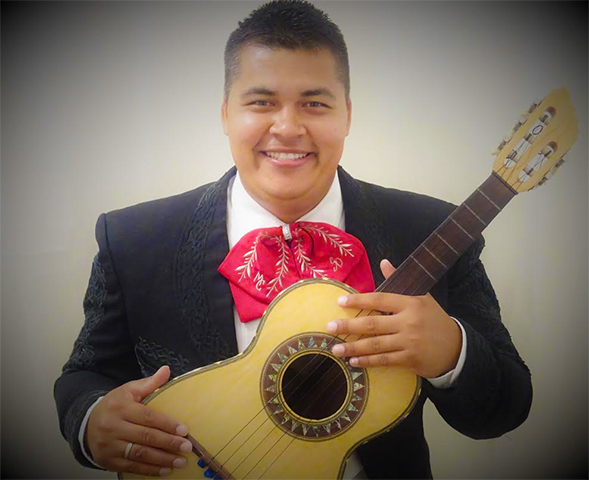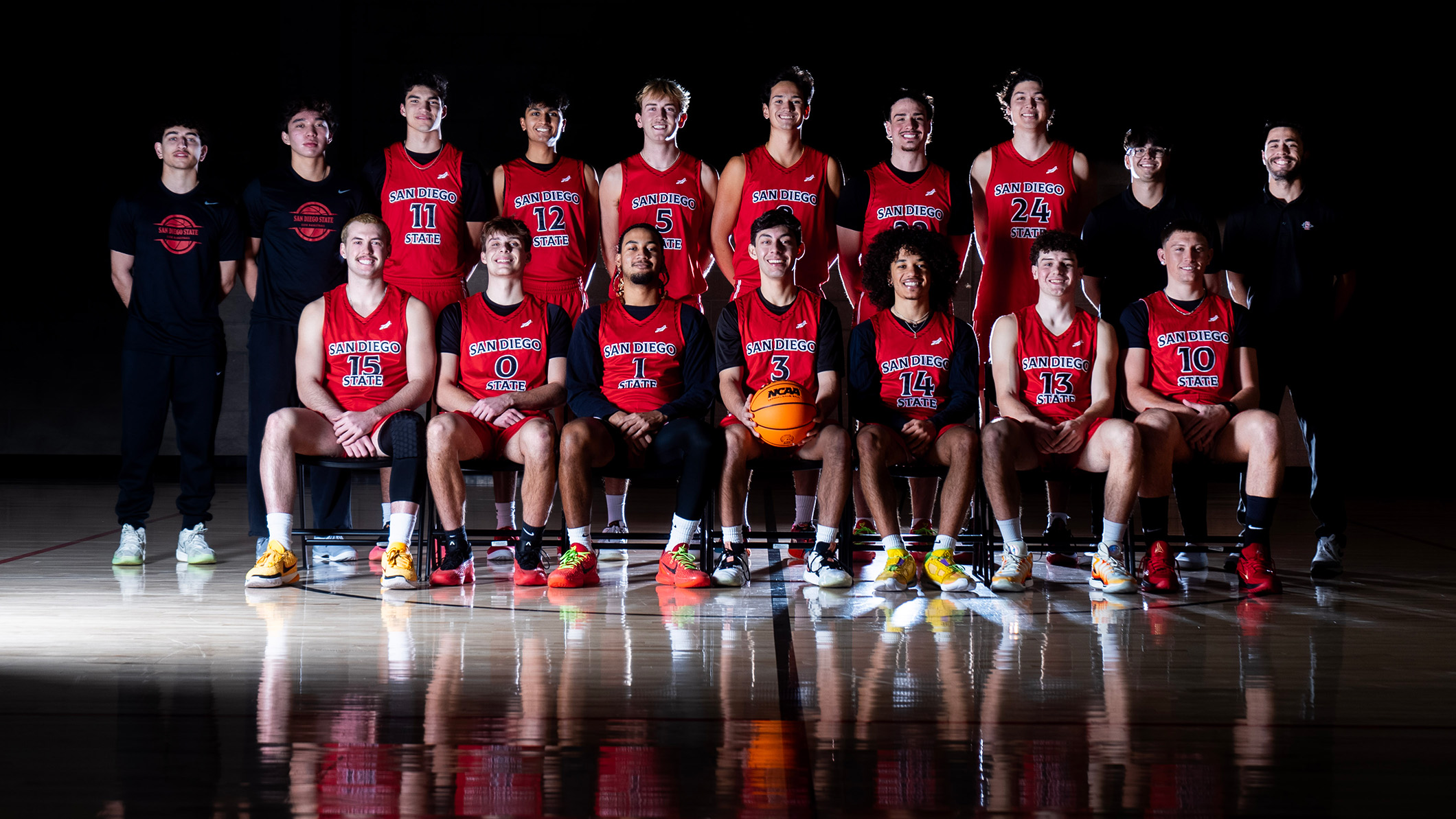Impacting the Future of Music Education
Mario Eguia is working to develop better music education curriculum.

It is no secret that college can be difficult, but San Diego State University Music Education major Mario Eguia has gone above and beyond rising to the challenge.
A U.S. Navy veteran, Eguia originally had his sights set on studying ethnomusicology, with a particular interest in the music of Mexico. He studied in the mariachi program at Southwestern College.
When asked why he shifted his focus from mariachi to music education, Eguia replied, “In the Navy, I was always teaching people to play guitar. I really liked teaching, so why not give it a shot?”
Eguia wears many different hats to balance his commitments. He is a full-time student, a family man with a wife and three children, a teacher and a performer. “We moved to Imperial Valley, where I thought it would be easier to have my family help out with the kids,” Eguia explains, “It’s about an hour and forty minutes to commute.”
On the weekends, Eguia teaches at City Heights Middle School and plays various mariachi gigs and he is often only able to see his family on Sundays, which takes a toll. Needless to say, he has plans to move his family back to San Diego in the near future.
Other musical pursuits
Eguia’s primary instrument is the vihuela, a guitar-like mariachi instrument. He is a member of a band called “Jarabe Mexicano,” in which he plays the requinto, a smaller, higher pitched guitar.
When asked about the meaning of the band’s name, Eguia said that loosely translated, it means “Music of the World.” They play a variety of mariachi and traditional folk music, as well as jazz standards and Frank Sinatra.
“We really try to do everything and embody the idea of ‘Jarabe,’ a collection or medley from a certain region.”
Philosophy on teaching
Eguia’s unique musical background has shaped his music and teaching philosophy.
“I really believe in this idea of quality music education for all,” Eguia said. Some of the rationale behind his philosophy is gleaned from his lack of classical training, and trepidation of attending music school because of it.
“I don’t understand why mariachi music education is any different from classical music education. I believe in fostering a community that believes in all-inclusive music education, not just traditional music education.”
Future success
With the high success rate in job placement of students from SDSU's music education program, it would appear that Eguia chose the right major to realize his aspirations. When asked about his hopes post-graduation, Eguia replied, “I really believe that I need to educate myself in music so I can better educate others. I want to be in a position where I can impact the quality of music education across the board.”
Despite the growing elimination of arts literacy in schools, forward-thinking students like Eguia will pave the way for a brighter future in music education.



